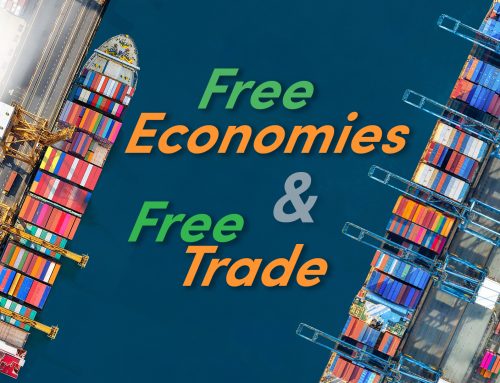
Letter to My Daughters: On Politics and Markets
Your mother asked me to write about “The Impact of Political Uncertainty on the Markets,” which is pretty simple. The markets hate uncertainty; they hate not knowing what the rules of the game are or are going to be; and the more uncertain things are the worse the markets behave (meaning they go down and you lose money). However, there are more nuanced, subtle, and complicated impacts that politics have on markets, economies, and prosperity for individuals and nations.
Over the last several months (or has it been years?), I’ve been writing to you about the importance of work, the difference between a calling and a profession, and how money is not the root of all evil but is a mechanism for producing prosperity, building character, and strengthening moral fiber. Last night, your mother and I watched a movie that provides stark evidence of those ideas in living color.
She Rises Up chronicles the remarkable journeys of three women helping to lift their communities out of poverty through the local businesses they fight the odds to maintain.[1]” Each of these entrepreneurs AND their employees stress over and over again how important it is to work. Work is the mechanism for them to become more prosperous, to have freedom and independence in chattel cultures, to form stronger community bonds, and to educate their children. Poverty is cured by money, money comes from jobs, and jobs come from businesses. These women have concluded that their countries are NOT dysfunctional because they are poor; they are poor because they are dysfunctional.
What does that have to do with politics? It turns out—everything. Governments can contribute to the dysfunction of their country.
One of the profiled entrepreneurs is Magatte Wade from Senegal, and she is ferocious in her denouncement of the policies, regulations, taxes, and tariffs that make it nearly impossible to start a business in her country. International corporations get a pass on those policies, but the local Indigenous entrepreneur has to obey every “jot and tittle” of the Byzantine rules and regulations that have been enacted. Enjoy her TED Talk[2] and recognize her for who she is– a warrior.
The entrepreneurs from Peru and Sri Lanka are of the same mind; the “leadership” of their countries is interested only in enriching themselves, NOT in making it possible for people to enrich themselves through their own efforts. It’s a common problem for these three women despite their disparate races, geographies, and cultures. Their governments are part of the problem; their governments are making it impossible for people to work. There are no prosperous nations without prosperous people. There are no prosperous people if there are no jobs. There are no jobs if there are no businesses. There are no businesses if there are no businesspeople. And there are no businesspeople if the obstacles to starting a business are insurmountable.
And that’s the challenge for politicians. How do we create incentives to work, be productive, start a business, save, and invest; how do we create the conditions necessary for prosperity? How do we create and not destroy the incentives to work? And all balanced against the need to help people that NEED help. It’s a challenge and a delicate balancing act.
Like any balancing act, there must be something to balance ON. A pyramid of ethical behavior, free-market economics, and a constitutional republic for a political system helps create the necessary conditions for prosperity. (A constitutional republic is characterized by the supreme power being held by the people who elect their leaders, not in name only, but in fact.) Markets need rules, rules need to be ethical, and rules need to be enforced. The more a society implements the rule of law equally, the easier it is to start a business due to fewer rules and regulations; the easier it is to stay in business with low taxes, low tariffs, and low barriers to trade; the more prosperous that society will be.
And ALL of those things are impacted by politics.
Policies cannot produce prosperity, but as we see in the film, policies can PREVENT prosperity. And without prosperity there is no time, energy, or money available to help the needy, to protect our environment, or to educate our children. She Rises Up provides ample evidence of that.
Let me know if you want to talk about this some more.
Love you,
Dad
[1] https://www.sherisesupfilm.com/. (Please note that clicking here leaves the Muhlenkamp and Company website and enters a third-party website. Muhlenkamp is not responsible for, nor can guarantee the accuracy of, any information contained on a third-party website.)
[2]https://www.ted.com/talks/magatte_wade_why_it_s_too_hard_to_start_a_business_in_africa_and_how_to_change_it?subtitle=en
(Please note that clicking here leaves the Muhlenkamp and Company website and enters a third-party website. Muhlenkamp is not responsible for, nor can guarantee the accuracy of, any information contained on a third-party website.)
The opinions expressed are those of Tony Muhlenkamp and are not intended to forecast future events, guarantee future results, or offer investment advice.








